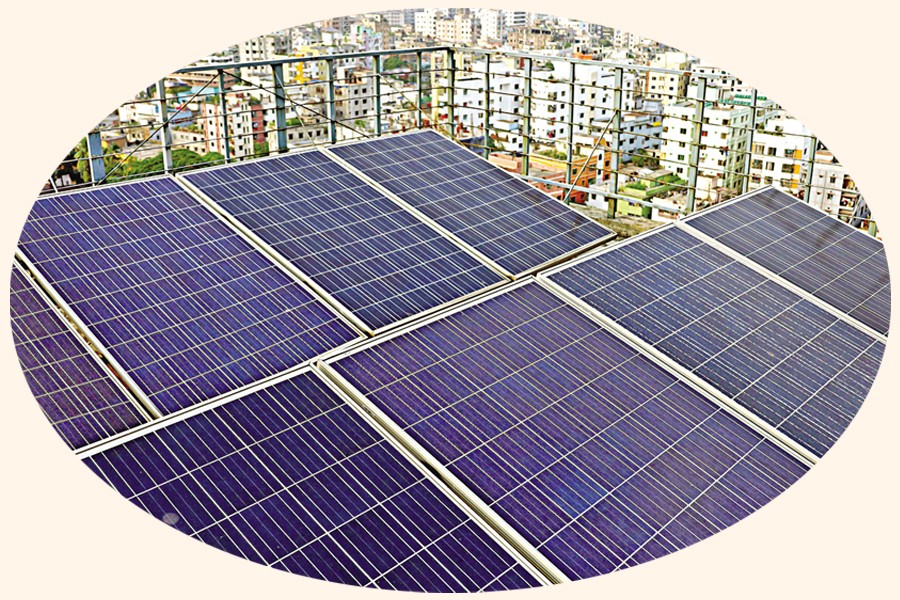
Published :
Updated :

The US-based Institute for Energy Economics and Financial Analysis (IEEFA) recommends a strong case of solar power for Bangladesh. According to a report it released on Monday, Bangladesh can reap the benefit of rooftop solar power to the tune of 2,000 Mega Watt worth Tk 110.32 billion or US$1.0 billion annually provided that the country opts for a plan to make most of the abundant resource at no cost. At a time when the country's main local energy resource is depleting fast and proving inadequate, the country's overwhelming dependence on imported energy has woefully strained its capacity for footing the bill. This is compulsive enough for the country to look for alternative energy sources that is within reach and also environmentally safe. The IEEFA's suggestion for making a choice for solar power certainly comes at a most appropriate time.
Some of the suggestions it has made such as the waiver of tariffs on solar panels and four accessories surely have merits and therefore stand to deliver the goods. There is no doubt that investments need to be made in a duck that lays golden eggs. It also makes economic sense as the production cost of power from solar system is lower than that of fossil fuels. It is exactly at this point, the comparative greater benefits of rooftop solar system and industries have been highlighted by the difference between levelised cost of electricity (LCOE) – expressed otherwise as a cost per unit of electricity generated from investment in a generation asset – at Tk 5.0/ kilowatt hour (kWh) and the prevailing power tariffs of Tk9.9/kWh and Tk10.55/kWh for businesses and industries respectively. Clearly, the emphasis here is on turning commercial and industrial buildings producers of a portion of the total power they consume. The 2,000 MW of power that, according to the IEEFA, can be added may not solve the power crisis but is certainly going to bring some relief to businesses and industries. The institute further notes that the capacity enhancement is possible at a better rate than that of Vietnam where 9.0 gigawatts (GW) was added similarly in 2020.
There is no reason why businesses and industries will not go for such investments if they have at their disposal the facility to produce a reasonable amount of power. Many of them have their captive power plants operated with imported fuels. On that count, solar power will prove much cheaper, non-pollutant and easier to operate. But the crucial point is the right kind of solar panels and technologies for power generation.
Initially, the investment cost may prove comparatively greater than benefits but from the point of LCOE, it will certainly make economic sense. If the import tariffs on solar panels and other accessories are waived or reduced substantially, installation of rooftop solar systems will be more attractive and compelling. If the standard of panels with its size and other parameters is made uniform to get the maximum benefits and the costs are not atrocious, a rooftop solar system for businesses and industries can revolutionise the renewable energy production to a large extent. The technology is getting more efficient and sophisticated with time. Bangladesh can as well build its own research facilities in order to join the international scientific communities for collaborative ventures.


 For all latest news, follow The Financial Express Google News channel.
For all latest news, follow The Financial Express Google News channel.